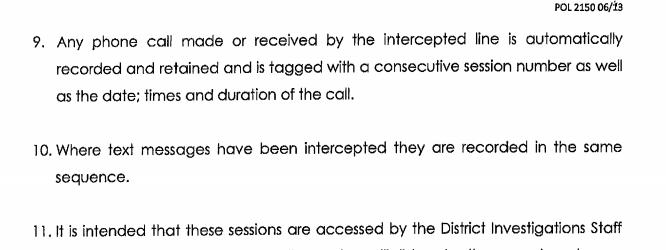Yesterday I ranted about the police spying on People Against Prisons Aotearoa. That rant was mostly predicated on the idea that the police had gained a production order for "call associated data" - call records, text messages, and voicemails - from the protesters. But the case has been covered in international media today, including parts of the police statement to the court. And that statement implies that the police didn't obtain a production order, but a full surveillance device warrant:
A police statement to the court, obtained by VICE, said the phone calls and text messages of those members were continually monitored and recorded, and accessible by the direct investigation staff.That's right: the police tapped people's phones and recorded their calls in a trespass case. One which was so serious that when it went to trial, it resulted in a discharge without conviction.
Supposedly, surveillance warrants are only available for serious crimes - either those with a penalty of 7 years or more in prison, or certain drug and firearms offences. It is difficult to see how a political protest could possibly fall into either category, and therefore how the police could legally have obtained this warrant. And these are certainly not the circumstances which Parliament or the people of New Zealand expected or permitted these spying powers to be used. It is a gross abuse of power, and one which directly threatens our democracy. We should not tolerate it. The police - and the judge who granted this odious, abusive warrant - must be held to account.
Update: This gets worse. I've obtained the police statement, and there's no mention of a warrant at all - just a "consent", given by a police officer, to tap the phones of other people:

This may be internal police bureaucratese, but you'd expect a statement to a court about an interception to state the legal basis under which it was carried out. None is included, leaving only this "consent". Which is obviously a nonsense - a police officer can no more "consent" to tap your phone as you can "consent" to tap theirs. So I really am wondering what the hell went on here. Its outrageous enough if the spying was legal - but if it was illegal, it makes it orders of magnitude worse. And either way, this is not what police, or interception powers, are for.






